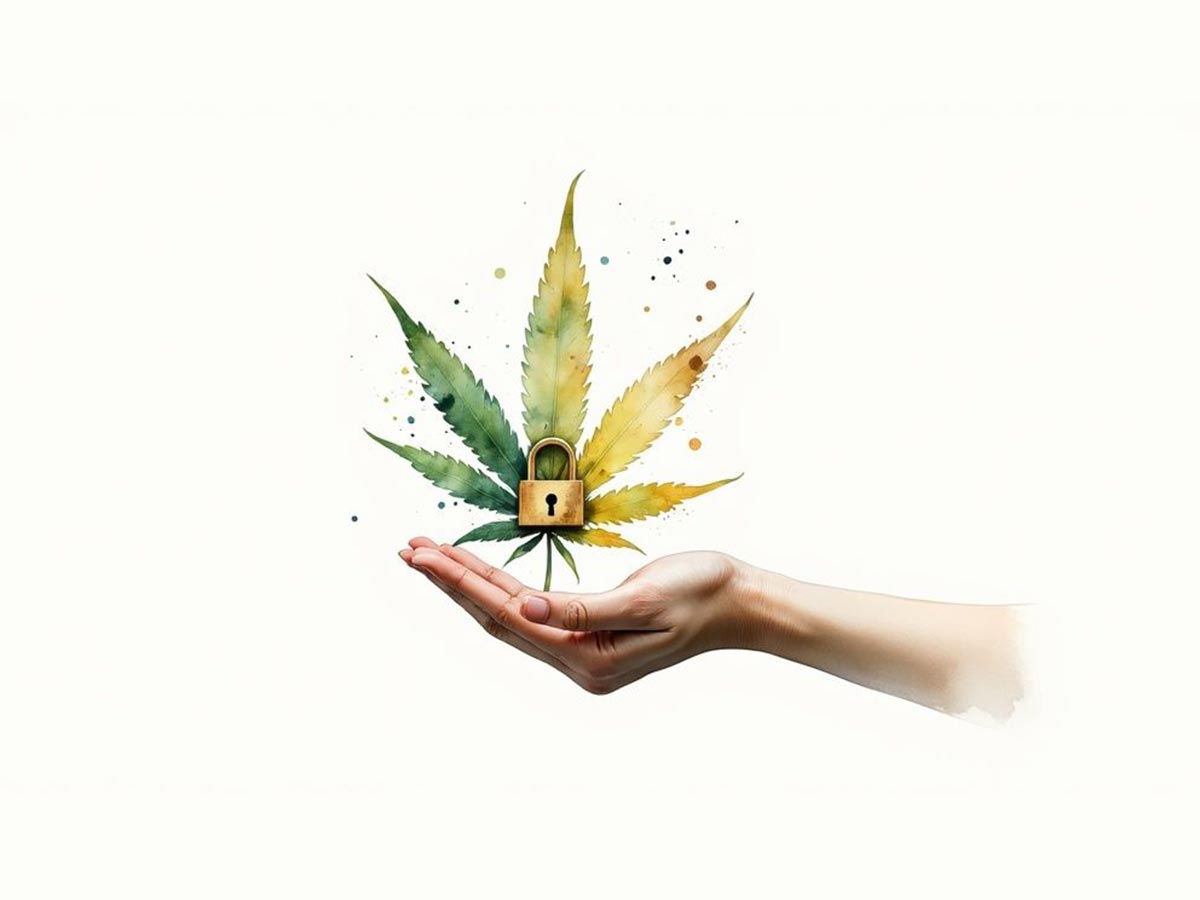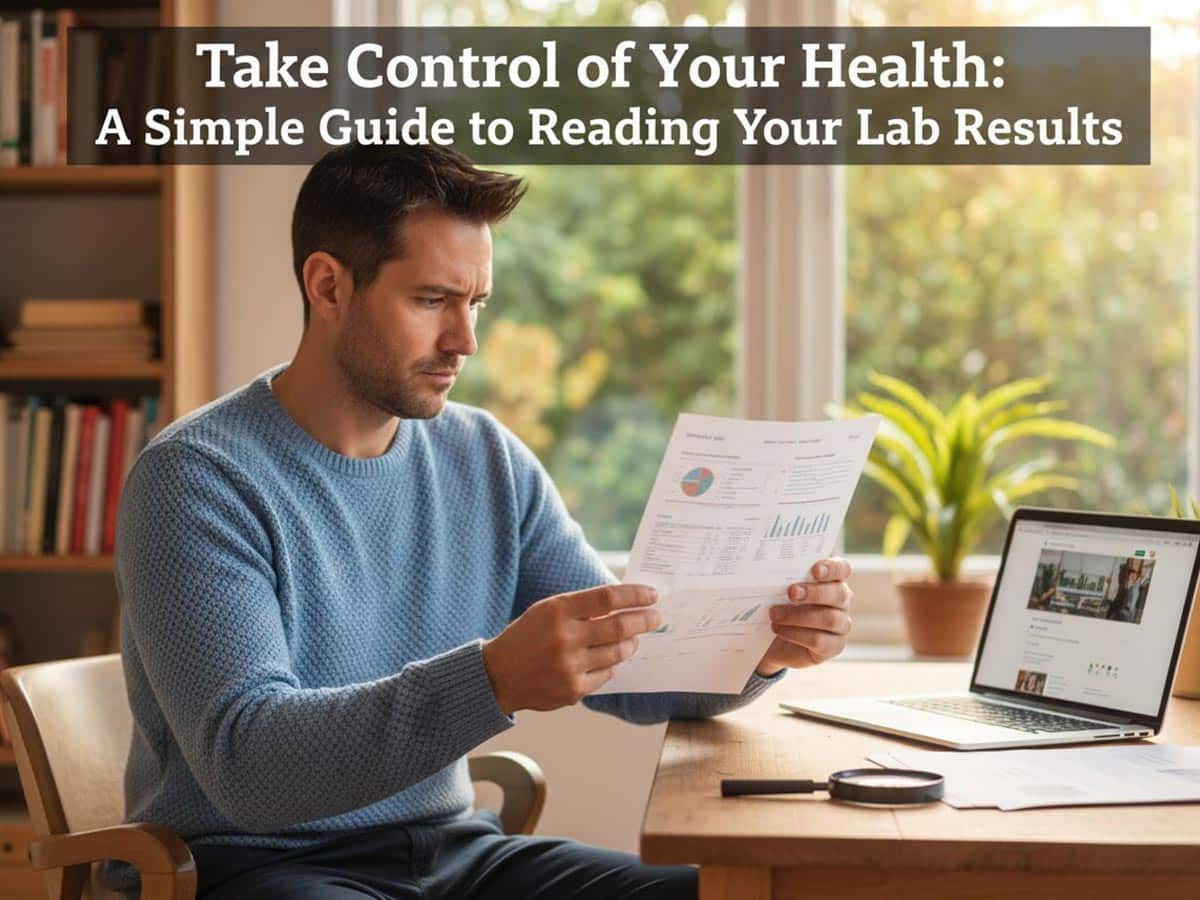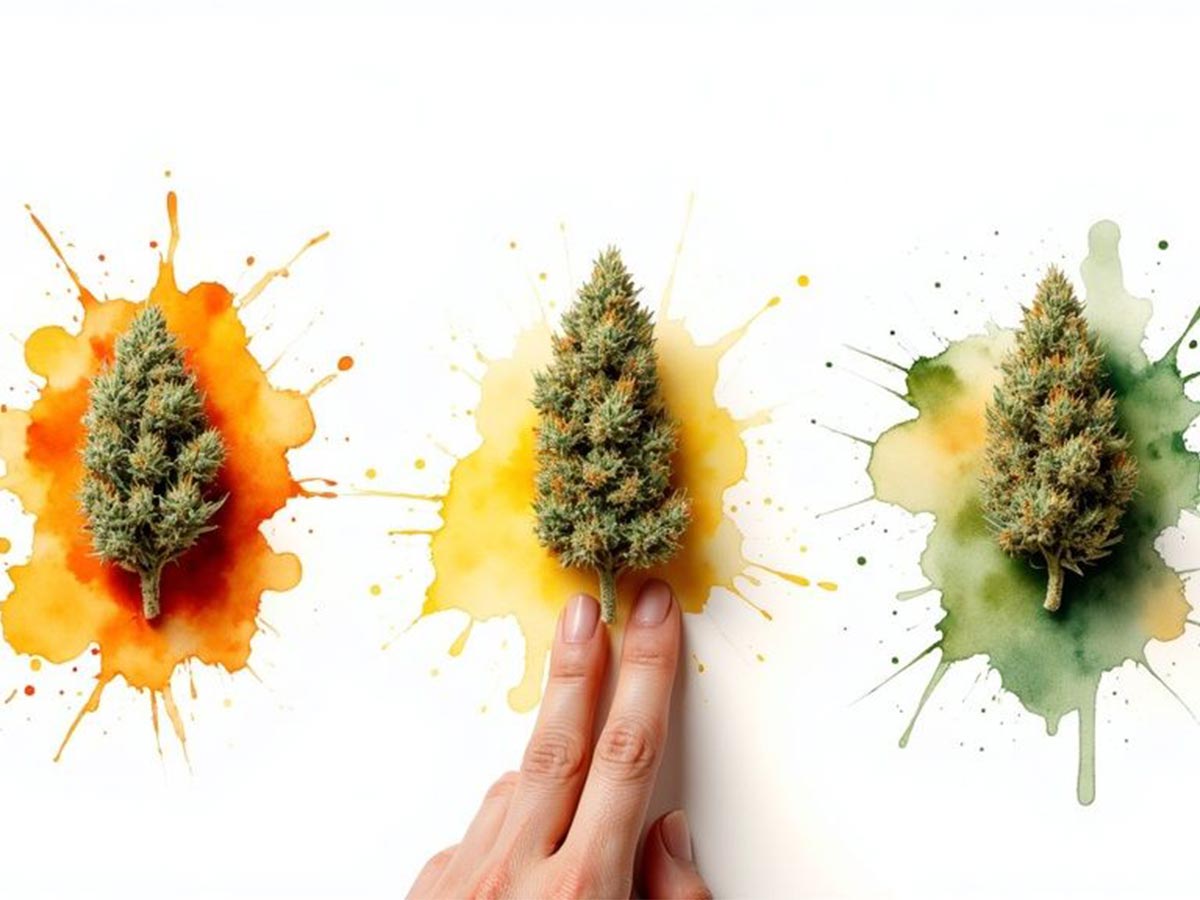If you’ve been exploring the world of cannabis, you’ve likely heard the buzz around Delta 8 THC. So, what is it? Think of Delta 8 as the approachable, laid-back cousin to the famous Delta 9 THC—the compound most people associate with a traditional marijuana high.
Delta 8 offers a smoother, milder psychoactive experience. This makes it a fantastic choice for anyone seeking a sense of calm and clear-headed relaxation without the intensity that can sometimes accompany Delta 9 products. Ready to see if it’s the right fit for you? Let’s dive in.
Understanding Delta 8 THC in Simple Terms
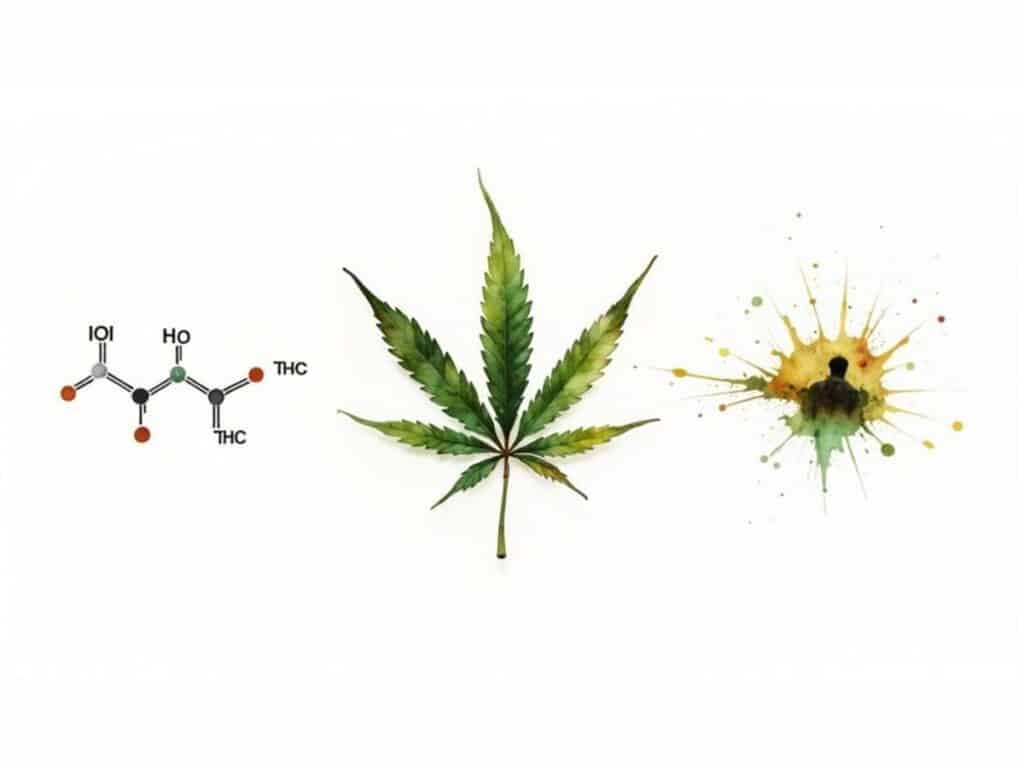
Delta 8 THC, or delta-8-tetrahydrocannabinol, is one of over 100 natural compounds called cannabinoids found in cannabis and hemp plants. To understand it, imagine you have two keys that are nearly identical—that’s Delta 8 and its relative, Delta 9. Both fit into the same locks in your body (your cannabinoid receptors), but a tiny difference in how one key is cut changes everything.
That slight tweak in its molecular structure is what creates its unique effects. While Delta 9 can produce a powerful high that might feel overwhelming for some, Delta 8 engages with your body more gently. Users often report feeling clear-headed, relaxed, and uplifted—free from the anxiety or mental fog that can sometimes tag along with a strong THC experience.
A Milder, More Functional Alternative
This unique quality makes Delta 8 a standout, especially for those seeking functional wellness. It hits that perfect sweet spot: an ideal middle ground for anyone who finds CBD too subtle but considers Delta 9 a bit too intense for daily life. It’s no surprise its popularity has skyrocketed.
The market for Delta 8 and other hemp-derived cannabinoids has seen explosive growth in the U.S., jumping from $200.5 million to an incredible $1.2 billion in sales by 2023.
This massive surge signals a clear demand for cannabinoids that offer different experiences. For example, many people find Delta 8 is perfect for brainstorming a creative project, enjoying a social gathering, or simply unwinding after a long day because it lets them stay functional and present.
To give you a quick snapshot, here’s a simple breakdown of what makes Delta 8 tick.
Delta 8 THC at a Glance
| Characteristic | Description |
|---|---|
| Common Name | Delta 8, D8 |
| Chemical Name | Delta-8-tetrahydrocannabinol |
| Source | Naturally occurs in small amounts in cannabis and hemp; mostly synthesized from CBD. |
| Psychoactivity | Mild to moderate; roughly half as potent as Delta 9 THC. |
| Common Effects | Relaxation, euphoria, clear-headedness, increased appetite. |
| Legal Status | Federally legal under the 2018 Farm Bill, but state laws vary. |
This table helps illustrate why Delta 8 has carved out such a specific niche.
The appeal is all about balance—delivering noticeable, pleasant effects while keeping you firmly in the driver’s seat. It serves as a fantastic entry point for people curious about THC’s benefits but cautious about its potential intensity.
Understanding these nuances is key to navigating the world of cannabis. For a deeper look into how different compounds work together, you might find it helpful to explore our guide on what full spectrum cannabis is and its unique benefits.
How Is Delta 8 THC Made?
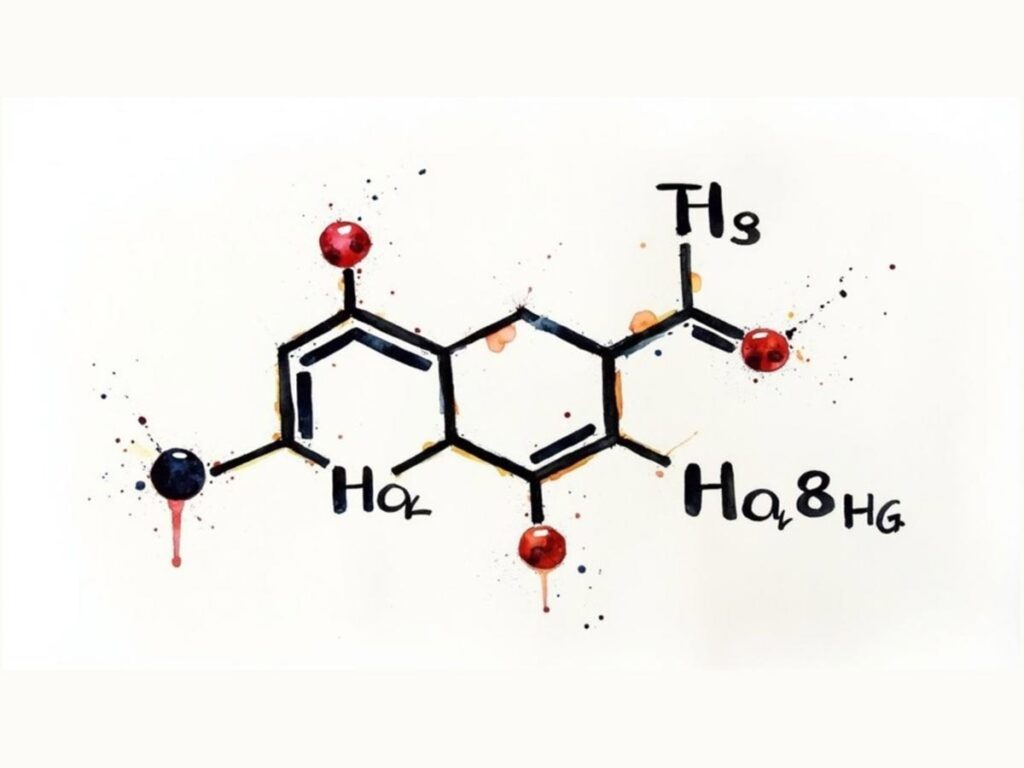
While Delta 8 THC is a natural part of the cannabis plant, it’s only present in tiny, trace amounts. Extracting it directly would be like panning for gold in a river with only a few specks—you’d need a mountain of plant material for a minuscule return, making it wildly impractical and expensive.
So, how do we have a market full of Delta 8 products? The secret lies in clever chemistry, starting with a much more abundant and federally legal cannabinoid: cannabidiol (CBD).
Nearly all the Delta 8 available today is created in a lab through a process called isomerization. It’s a technical term, but the concept is straightforward. Think of CBD and Delta 8 THC as two different structures built from the exact same LEGO bricks (atoms). Chemists take CBD extracted from hemp and use a catalyst to rearrange those atoms, transforming it into Delta 8 THC.
Why Lab Testing Is Non-Negotiable
This conversion process is the single biggest reason why you must be selective about where you buy your Delta 8. If the isomerization isn’t performed correctly, there’s a risk of leftover acids, solvents, or other unwanted byproducts in the final product.
The only way to be certain a product is pure, safe, and contains what the label promises is by checking its third-party lab report, also known as a Certificate of Analysis (COA). Any brand that values your trust and business will make these reports easily accessible on their website.
Without a COA, you’re buying blind. An independent lab provides an unbiased breakdown, confirming the product is safe, accurately labeled, and free of harmful contaminants.
How to Read a Certificate of Analysis (COA)
A COA might look intimidating at first, but it’s simple to read once you know what to look for. Think of it as the product’s report card—your actionable tool for making a safe choice.
Here’s your checklist:
- Cannabinoid Profile: This is the main event. It shows the exact percentage of Delta 8, Delta 9, CBD, and other cannabinoids. Actionable Insight: The most important number to check is the Delta 9 THC level—confirm it’s at or below the legal limit of 0.3%.
- Potency: This confirms you’re getting what you paid for. Does the amount of Delta 8 in the report match what’s advertised on the label?
- Contaminants Panel: This is your safety check. Look for “Pass” or “ND” (None Detected) for pesticides, heavy metals, residual solvents, and mycotoxins. If anything says “Fail,” do not buy the product.
Understanding how Delta 8 is made empowers you to choose a reputable, transparent brand for a safe and enjoyable experience. To learn more about the diverse world of cannabinoids, you can explore educational resources like Wikipedia.
Delta 8 vs. Delta 9 THC: Key Differences
To truly appreciate what makes Delta 8 THC special, it helps to compare it directly with its more famous cousin, Delta 9 THC. While their names are nearly identical, a tiny difference in their chemical structure creates a world of difference in effects, potency, and legality.
Understanding this distinction is the key to discovering which one is the right fit for your goals.
At a molecular level, the only thing separating them is the location of a specific double bond. In Delta 9, that bond is on the ninth carbon chain. In Delta 8, it’s on the eighth. This subtle shift completely changes how each one interacts with your body’s endocannabinoid system, resulting in two very different experiences.
Potency and Psychoactive Effects
The most immediate difference is the intensity. Delta 9 THC is the primary compound responsible for marijuana’s classic, powerful “high,” which can sometimes be too much for newcomers or those sensitive to THC.
Delta 8, on the other hand, is widely considered to be about half as potent. This delivers a much smoother, clearer, and more manageable experience. People often report feeling relaxed and uplifted without the intense head-rush or anxiety that can accompany Delta 9.
Practical Example: Imagine you want something to help you unwind and get into a creative flow for painting. Delta 8 could provide a gentle, uplifting buzz that enhances focus without making you feel too foggy to hold a brush. Delta 9, in contrast, might be more sedative and better suited for an evening on the couch. It’s not just about being “less high”—it’s about having a different kind of high.
This chart gives you a good look at some of the most common effects people report from Delta 8.
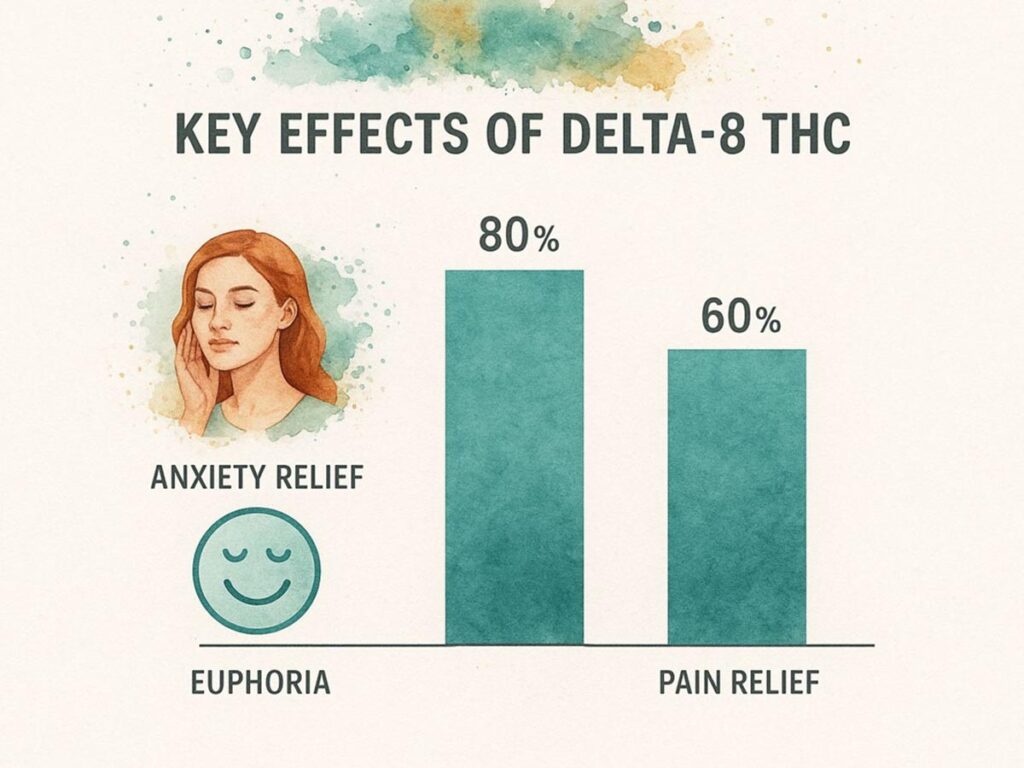
As you can see, anxiety relief is a major reported benefit, which aligns perfectly with its reputation as a mellower alternative to traditional THC.
Legal Status and Origin
This is where things get particularly interesting. Delta 9 THC is federally classified as a Schedule I controlled substance when its concentration exceeds 0.3% by dry weight. Its legality is a patchwork of state laws, with many permitting it for either medical or recreational use.
Delta 8, however, exists in a legal gray area created by the 2018 Farm Bill. This landmark legislation legalized industrial hemp and all its derivatives, provided they contain less than 0.3% Delta 9 THC. Since most Delta 8 is converted from hemp-derived CBD, it is technically federally legal.
But here’s the crucial catch: many states have since passed their own laws to specifically regulate or ban Delta 8 products. Therefore, it’s absolutely essential to check your local regulations before making a purchase.
Comparing Delta 8 THC and Delta 9 THC
To make these differences crystal clear, here is a simple side-by-side comparison. This breakdown highlights the core distinctions in effects, legality, and origin to help you make an informed choice.
| Feature | Delta 8 THC | Delta 9 THC |
|---|---|---|
| Potency | Milder, about 50% as potent as Delta 9. | Highly potent and psychoactive. |
| Common Experience | Clear-headed, uplifting, relaxing, functional. | Intense euphoria, sedative, can cause anxiety. |
| Federal Legal Status | Legal if derived from hemp with <0.3% D9. | Illegal (Schedule I substance) if >0.3%. |
| Origin | Mainly synthesized from hemp-derived CBD. | Abundant and extracted directly from cannabis. |
Ultimately, the choice between them comes down to your personal preference and desired outcome. If you’re looking for a gentler introduction to THC or want to maintain a clear head without an overwhelming psychoactive experience, Delta 8 offers a fantastic and balanced alternative.
What Does Delta 8 THC Actually Feel Like?
Let’s move beyond the science and legal jargon. What really matters is how Delta 8 feels. For most people, the experience is a welcome departure from what they might expect from traditional cannabis.
Imagine a smooth, manageable wave of relaxation washing over you. Users consistently describe a gentle mood lift and a mild euphoria that sharpens focus without feeling overwhelming. It’s the ideal state for quieting a racing mind after a stressful day while still feeling present, engaged, and in control.
A Clear-Headed High
One of the most celebrated benefits of Delta 8 is its ability to help you relax without locking you to the couch. It’s often described as an uplifting, functional buzz that won’t leave you feeling foggy or sedated. This makes it an excellent companion for a wide range of activities.
Practical Examples:
- Creative Pursuits: It can help dissolve mental blocks while brainstorming or working on a passion project.
- Socializing: Enjoy a night with friends without the social anxiety that stronger THC can sometimes induce.
- Daily Tasks: Make weekend chores or running errands feel a little less mundane and more enjoyable.
People who use Delta 8 often report these key benefits:
- Stress Relief: Its calming effects can help take the edge off daily worries, often without the paranoia some experience with high-potency THC.
- Sharpened Focus: Many find it helps them tune out distractions and concentrate on a task at hand.
- Appetite Boost: Just like its famous cousin, Delta 8 is known to stimulate appetite, which can be helpful for those who struggle with it.
- Body Comfort: Anecdotal reports frequently mention it helps soothe minor aches and pains, promoting an overall sense of physical ease.
Many describe it as a “body high” with mental clarity. You feel physically at ease and comfortable, while your mind remains sharp and active. It’s this unique combination that has made it a go-to for so many.
The Bigger Picture: Alternative Cannabinoids
The excitement around Delta 8 is part of a larger trend. Consumers are actively seeking wellness options beyond just CBD or traditional THC, and cannabinoids like Delta 8 offer a unique middle ground. It provides both therapeutic potential and a mild psychoactive experience that sets it apart.
In fact, market analysts predict that by 2025, these alternative cannabinoids will become even more mainstream, thanks to their broad consumer appeal and friendlier regulatory landscape. You can dive deeper into these trends by exploring the future of the cannabis market.
This movement is all about providing choices that fit a modern lifestyle. For many people, Delta 8 is the perfect solution—stronger than CBD but much gentler and more manageable than Delta 9.
Navigating the Complex Legal Landscape
So, is Delta 8 THC actually legal? The short answer is… it’s complicated. The legality of Delta 8 is one of the most confusing aspects of the cannabis industry, with laws that can change dramatically from one state to another.
This situation began with the 2018 Farm Bill. This landmark federal law legalized industrial hemp, defining it as any cannabis plant containing less than 0.3% Delta 9 THC by dry weight. Crucially, the bill also legalized all of hemp’s derivatives. This unintentionally opened a legal pathway for Delta 8 to enter the market.
Since most Delta 8 is made by converting hemp-derived CBD, it technically falls under this federal protection. This loophole is the single reason Delta 8 products became widely available across the country.
Why Federal Legality Isn’t the Whole Story
Here’s where it gets tricky. Just because a substance is federally permissible doesn’t mean it’s legal everywhere. As Delta 8’s popularity soared, many state governments stepped in to create their own regulations.
The result is a messy patchwork of laws. Some states have banned Delta 8 THC outright, while others have imposed strict restrictions on who can sell it and how. Lawmakers in these states often argue that the Farm Bill was intended to support agriculture, not to create a backdoor for intoxicating products.
Actionable Insight: Your local and state laws are what ultimately matter. The ability to buy Delta 8 online does not automatically make it legal to possess where you live. The responsibility is on you to understand the regulations in your area before purchasing.
Staying Informed in a Changing Environment
Keeping up with these laws can feel like trying to hit a moving target, as regulations are constantly being debated and updated. Here’s how you can stay informed:
- Check State Health Department Websites: These are often the first to post official updates on cannabinoid laws.
- Follow Local Cannabis News Outlets: Reputable regional publications are great resources for tracking legislative changes.
- Ask Your Retailer: A trustworthy store—whether online or brick-and-mortar—should be knowledgeable about shipping restrictions and the laws in your state.
Taking these steps is essential for making smart, responsible choices. For a deeper dive, you can explore the nuances of buying pot online and its legal considerations in our comprehensive guide.
Using Delta 8 Products Safely and Effectively
Ready to discover the benefits of Delta 8 THC for yourself? A positive experience starts with using it safely, and the golden rule is simple: “start low and go slow.”
This isn’t just a catchy phrase; it’s the single most important piece of advice for anyone trying a new cannabinoid. Your goal is to find the perfect dose for your body, and the last thing you want is to take too much too soon.
Think of it like testing the water temperature at a pool. You don’t just dive in headfirst; you start by dipping in a toe. Begin with a very small amount—like a single puff from a vape or half of a gummy—and then wait. Patience is critical, as the onset time varies significantly depending on the product you use.
Choosing the Right Product for You
Not all Delta 8 products are created equal. They differ in how quickly they take effect and how long the experience lasts. Choosing the right one depends on your goals and preferences.
- Vapes and Flower: For the fastest effects, inhalation is the way to go. You’ll typically feel something within minutes, giving you excellent control over your dosage. The experience usually lasts for about 3-5 hours.
- Edibles (Gummies, Chocolates): These are a completely different experience. Because they have to be digested, they can take anywhere from 30 to 90 minutes to kick in. When they do, the effects are often more pronounced and can last for up to 8 hours.
- Tinctures: Tinctures are the perfect middle ground. Placed under the tongue for sublingual absorption, they kick in faster than an edible but not as instantly as a vape, offering a balanced and manageable experience.
The market is constantly innovating. For instance, the global market for Delta 8 THC beverages is already valued at around $350 million in 2024, showing a clear consumer shift towards products that are discreet, convenient, and easy to dose. You can discover insights into the Delta 8 beverages market to see how the industry is evolving.
And don’t forget proper storage! Keeping your products fresh and potent is just as important as choosing the right one. To protect your investment, check out our guide on finding the best cannabis storage containers.
Frequently Asked Questions About Delta 8
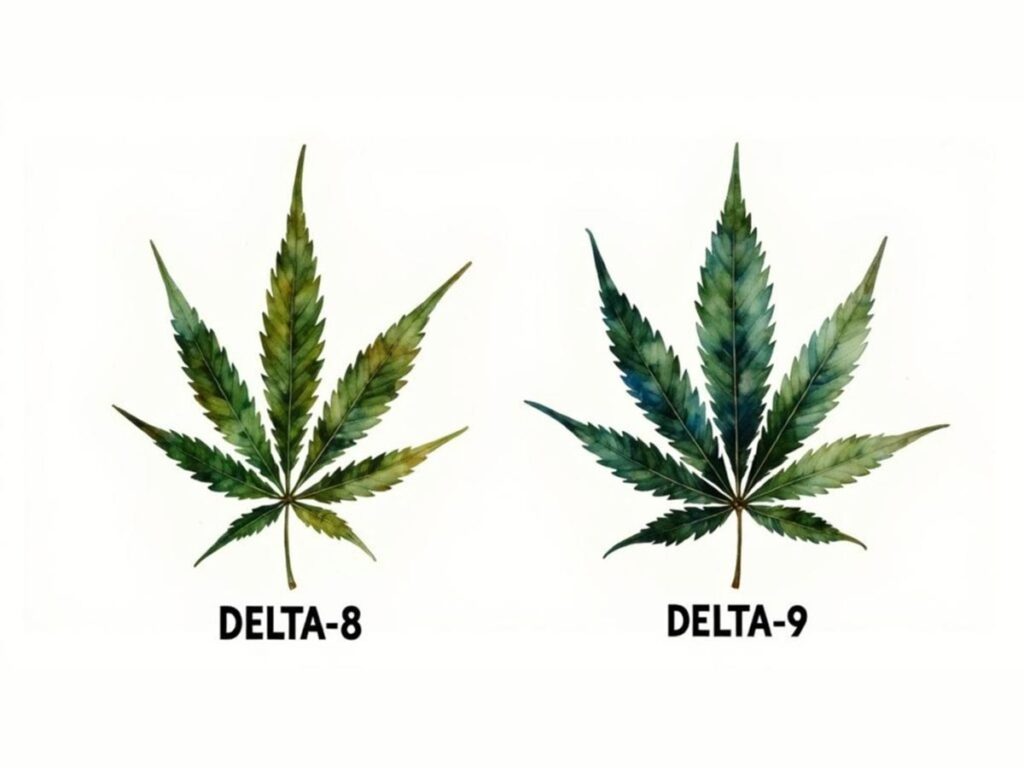
As you explore the world of Delta 8 THC, it’s normal to have questions. To help you feel confident and well-informed, we’ve compiled clear answers to the most common inquiries people have when first discovering this unique cannabinoid.
Will Delta 8 THC Show Up on a Drug Test?
Yes, you should absolutely assume it will. Standard drug tests are not sophisticated enough to distinguish between different THC molecules; they simply screen for THC metabolites.
Because Delta 8 and Delta 9 have such similar chemical structures, your body processes them in nearly the same way. Actionable Insight: If you have an upcoming drug screening for any reason, it is safest to avoid all Delta 8 products entirely to prevent a positive test result.
How Long Do the Effects of Delta 8 Last?
The duration of effects depends almost entirely on how you consume it. Your delivery method is the biggest factor in determining onset time and how long the experience will last.
- Inhalation (Vapes/Flower): This is the fastest method, with effects felt within minutes. The experience typically lasts for 3-5 hours.
- Edibles (Gummies/Chocolates): These take much longer to kick in, usually between 30 and 90 minutes. The trade-off is that the effects are significantly longer-lasting, often for 6-8 hours or more.
A critical piece of advice for edibles: always start with a very small dose (e.g., 5mg or less) and wait at least two full hours before even considering taking more. Patience is your best friend and will ensure you have a comfortable and enjoyable experience.
Is Delta 8 a Natural or Synthetic Cannabinoid?
That’s an excellent question, and the answer is nuanced. Delta 8 THC is a naturally occurring cannabinoid found in both hemp and cannabis plants. You can learn more about the origins of different cannabinoids from trustworthy resources like Wikipedia.
However, it only appears in very small, trace amounts. To produce enough for the products on the market, chemists convert abundant, hemp-derived CBD into Delta 8 in a laboratory setting. This makes it “semi-synthetic”—it originates from a natural plant source but is finalized through a scientific process. This is precisely why choosing brands that provide third-party lab testing is non-negotiable for confirming purity and safety.
At Elevation Headquarters, our mission is to provide safe, high-quality, and transparently sourced cannabis products that help you find your ideal experience. Take a look at our carefully chosen selection of premium vapes, edibles, and more.

